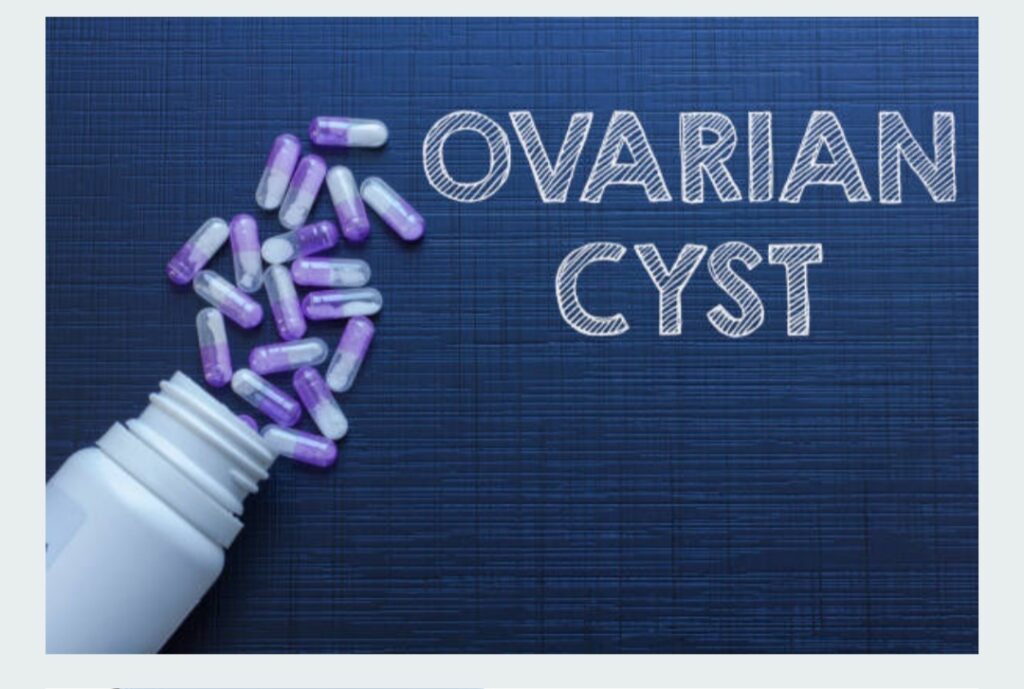Polycystic ovarian syndrome (PCOS) is additionally referred to as Polycystic ovarian Disease (PCOD). Polycystic ovarian syndrome (PCOS) is a common problem among teen girls and young women. Almost 1 out of 10 women has PCOS/ PCOD. It’s becoming more common due to increased awareness and therefore the global increase within the prevalence of overweight and obesity. It’s also a heterogeneous disorder, that has been difficult to define because there is no single abnormality or diagnostic test that defines the syndrome.
PCOS/ PCOD is the most common endocrinopathy in reproductive-aged women and ovarian disorder related to excess androgen in women affecting 6 – 21% (depending on the applied diagnostic criteria) of this population worldwide. It has associations with metabolic syndromes, psychological mentality, and reproductive organs in women.

What is PCOS/PCOD?
Polycystic ovary syndrome is a hormone imbalance which will cause irregular periods, unwanted hair growth, and acne. PCOS begins during a girl’s teen years and this can be mild to severe.
The Rotterdam 2003 criteria define PCOS because the incidence of any two of the three key criteria, namely, oligo-ovulation and/or anovulation, excess androgen activity, and polycystic ovaries.
Do you need to know about PCOS/PCOD? Do you want to have a healthy lifestyle? This article will surely help you!
PCOS/PCOD TIP: Diet and lifestyle play a important role in the development of PCOS/ PCOD and their modification remains the primary line of treatment. Follow a balance diet. Your body needs adequate amount of carbohydrates, protein, and fat.

Pathogenesis of PCOS/PCOD
The complex pathogenesis involves:
- hypothalamic-pituitary gonadotropin secretion abnormality,
- impaired ovary steroidogenesis,
- Insulin resistance (IR).
The resulting complex of physiological dysfunction produced by interrelated metabolic and hormonal factors predisposes patients with PCOS to different complications like endometrial hyperplasia and cancer, cardiovascular disease (CVD), miscarriage, and acanthosis nigricans (AN).
The complications increase the burden faced by patients, besides affecting social and emotional wellbeing, especially in adolescents, who are under the impression of being afflicted by a ‘disease’.
Diagnosis of PCOS/PCOD
The syndrome may be diagnosed if a minimum of two of the subsequent are present:
Oligomenorrhea or amenorrhea is related to decreased ovulation. PCOS/ PCOD is that the most commonest explanation for anovulatory infertility
- Hyperandrogenemia or clinical features of androgen excess, within the absence of other underlying disease states
- Abnormal ovarian ultrasound with 12 follicles in each ovary each having a diameter of 2 – 9 mm, or increased ovarian volume
- Increased LH with increased LH/FSH ratio.
The symptoms of PCOS/PCOD:
PCOS is characterized by hyperandrogenism and/or chronic anovulation which can manifest with a range of symptoms (e.g., hirsutism, acne, oligomenorrhea, and infertility) and is associated with increased risk of cardiometabolic disease, including hypertension, dyslipidemia, insulin resistance (IR), and type 2 diabetes mellitus (T2DM).
- Absent, infrequent, or irregular periods
- Excess hair (hirsutism) particularly on your face, chest, and stomach
- Difficulty controlling weight
- Thinning of hair
- Acne
- Infertility (problems conceiving)
- Tiredness
- Mood swings
- Raised cholesterol
- Under or overactive thyroid
- Low self-esteem

What Causes PCOS/PCOD
Genetics, hormones, and lifestyle factors all play a role in PCOS/ PCOD. Women with PCOS/ PCOD are 50% more likely to have a mother, aunt, or sister with PCOS and the condition is more common in women of Asian, Aboriginal, and Torres Strait Islander and African backgrounds.
Treatment for PCOS/PCOD
Treatment for PCOS/PCOD includes insulin-lowering drugs, anti-androgen therapy, oral contraceptives, and the implementation of lifestyle changes, including weight loss if necessary. Weight loss, accompanied by an increase in insulin sensitivity (Si), has proven to be a successful treatment for the metabolic and hormonal abnormalities characteristic of the PCOS population/ PCOD.
Treatment of polycystic ovary syndrome is individualized based on the patient’s presentation and desire for pregnancy. For patients who are overweight, weight loss is recommended. Clomiphene and letrozole are first-line medications for infertility. Metformin is the first-line medication for metabolic manifestations, such as hyperglycemia. Hormonal contraceptives are first-line therapy for irregular menses and dermatologic manifestations.
Nutrition Goals for Improving PCOS/PCOD
- Eat a diet rich in fruits, vegetables, whole grains, low-fat dairy, and beans.
- Eat protein-containing foods such as lean meats, poultry, and eggs, with meals and snacks to add fullness and help manage blood sugar levels.
- Select foods high in omega-3 fatty acids. Examples include fatty fish (salmon, mackerel, herring, sardines, and albacore tuna), seeds (flax seeds, chia seeds), oils (canola, olive, peanut), and nuts (walnuts).
- Limit simple sugars and refined carbohydrates such as white bread, pasta, rice, and sugar in beverages and desserts.

Tips for a Healthy PCOS/PCOD Lifestyle:
- Eat a colorful variety of fresh fruits and vegetables every day to get a wide range of protective nutrients.
- Choose whole grains which can lower insulin resistance.
- Consume dark leafy greens. These foods are rich sources of fiber, vitamins, and minerals.
- Limit sugar-sweetened beverages and foods like desserts. High sugar content in the diet increases insulin resistance.
- Engage in moderate or vigorous-intensity aerobic activity on most days of the week for weight loss and maintenance. Remember to check with your doctor before beginning a new exercise program. Athletes with PCOS have specific needs and are advised to seek the assistance of a dietitian for a personalized eating plan.
Lifestyle Modification and PCOS/PCOD Lifestyle
Lifestyle is closely related to the physical and mental health of people and is effective in the onset or development of many diseases including PCOS/ PCOD. Obesity is also a major factor in the incidence and intensity of PCOS/ PCOD. Obesity aggravates the clinical presentation of the disease in terms of both fertility and metabolism. Women with PCOS/ PCOD have shown 30-40% progression to type 2 diabetes (T2D), adipose tissue dysfunction, abnormalities in lipid metabolism, and body fat distribution. There is no definite treatment, hence women with PCOS/ PCOD are treated on signs and symptoms. The most common medication include oral contraceptives (OCPs), antiandrogen topical medication, and gonadotropins. Low fat, hypo-caloric-dash diet, and exercise have shown a 5% improvement in women with PCOS/ PCOD with reduction of IR, triglycerides, and VLDL.
Long-term lifestyle modification is mainly common to overweight women with PCOS/ PCOD. A weekly or monthly intervention of an obstetrician/gynecologist, psychiatrist, dietitian, and fitness professional helps in restoration of ovulation (60/67 previously anovulatory women), improvements in pregnancy (52/67), and reduction in miscarriage rates (75% preintervention to 18% post-intervention).

Nutrition and Lifestyle Modification
Studies revealed that lifestyle modification consisting of weekly/biweekly group meetings with monitoring by a dietitian and exercise physiologist and individualized nutrition plans and exercise plans (150 min/week). While significant reductions in androgens occurred only for the combination of metformin and dietary advice, significant weight reductions occurred for both lifestyle treatment and lifestyle treatment with metformin (850 mg twice daily). It provides good evidence that long-term adoption of these principles in a primary healthcare setting will help reduce the risk of IGT and type 2 diabetes, and aid in the long-term management of reproductive fitness in women with PCOS/ PCOD.
Learn and practice “mindful” eating. This means eating is necessary when our body needs fuel, not when we are bored or you have a cravings. Eat at least 5 total servings of fruits and vegetables every day. These foods are full of nutrients, and most are low in calories. Along with vitamins, minerals, and antioxidants, you get important phytochemicals (natural plant compounds) that can help ease the hormonal imbalances that come with PCOS.
- If you like fruit juice, choose brands that are 100% real juice, and drink it in moderation. Whole fruit is a more healthful choice than fruit juice because it contains fiber.
- Limit or avoid caffeine, artificial sweeteners, and nicotine. These can increase your insulin levels, even if you do not have high blood glucose.
- Keep a food journal to help you see your eating patterns. This makes it easier to find areas where you could make changes.
Exercise and PCOS/PCOD
There is surprisingly scant literature on the role of exercise in managing patients with PCOS/ PCOD. What we know, and what we recommend, must therefore come largely from studies involving non-PCOS subjects. We currently recommend 30 min of exercise on at least 5 days of the week to maintain weight and for a healthy lifestyle. Recent studies showed that 60 – 75 min of the moderate-to-high intensity of physical activity promotes a greater long-term (12 – 18 months) weight loss compared with the conventional recommendation for optimum health.
Accumulation of exercise in frequent short periods of physical activity appears to have a similar influence in long-term weight loss programs. Activity related to daily living and leisure time activity is an important determinant of body weight but not of the response to weight management programs. A realistic approach to exercise depends on the assessment of the patient’s current exercise habits, preferences regarding the type of exercise, and inclination to undertake exercise.

Types of Exercises:
Aerobic exercise. This is important for cardiovascular fitness and to increase energy expenditure as part of a weight loss program. It is important to recognize that the overweight and the unfit patient may have limited capacity for aerobic exercise.
Exercises to increase suppleness and flexibility. Although they may not greatly increase calorie expenditure, such exercises may increase engagement with an exercise program, decrease the risk of injury with exercise, and promote a sense of well-being.
Endurance exercise. For patients who cannot manage high-intensity exercise, prolonged lower-level activity is an appropriate way to gain fitness and increase energy expenditure. Walking with a pedometer can be a very useful approach to begin to increase energy expenditure.
Resistance training. Increase in muscle strength and mass with weight training has been neglected as a means of improving function and body composition until recently. The high metabolic rate of muscle means, muscle mass is an important determinant of resting energy expenditure and resistance training. This is now regarded as a highly acceptable way to influence weight, body composition, and insulin sensitivity.
Other Benefits of Exercise
Being active can also help you reduce stress. Less stress is important to your health for many reasons:
- Chronic stress can raise levels of the hormone cortisol:
- Cortisol makes it easy to store fat around your abdominal organs. This is especially true if you tend to eat more when you feel stressed.
- Cortisol can also make estrogen imbalances worse. This can interfere with normal periods and fertility.
- Stress also makes the body take glucose from storage and release it into your blood.
Frequently asked questions
Does PCOS mean I have cysts on my ovaries?
The term “polycystic ovaries” means that there are lots of tiny cysts, or bumps, inside of the ovaries. Some young women with PCOS have these cysts; others only have a few.
Why do I get acne and/or extra hair on my body?
Acne and extra hair on your face and body can happen if your body is making too much testosterone. If you are suffering from PCOD/ PCOS, then your ovaries may secrete a little bit more testosterone than they are supposed to. Skin cells and hair follicles can be extremely sensitive to the small increases in testosterone found in young women with PCOS/ PCOD.
Ask your health care provider about a weight loss plan if you are overweight.
If you’re overweight, losing weight may lessen some of the symptoms of PCOS/ PCOD. Consult health care provider or nutritionist about healthy ways to lose weight, exercising more and following a diet plan that can help to manage insulin levels. Thus, Healthy eating can also keep your heart healthy and lower your risk of developing diabetes.
Why are periods becomes so irregular?
Having PCOS/ PCOD means that your ovaries aren’t getting the right (hormonal) signals from your pituitary gland. Without these signals, you will not ovulate (make eggs) every month. Period may be irregular, or you may not have a period at all.



